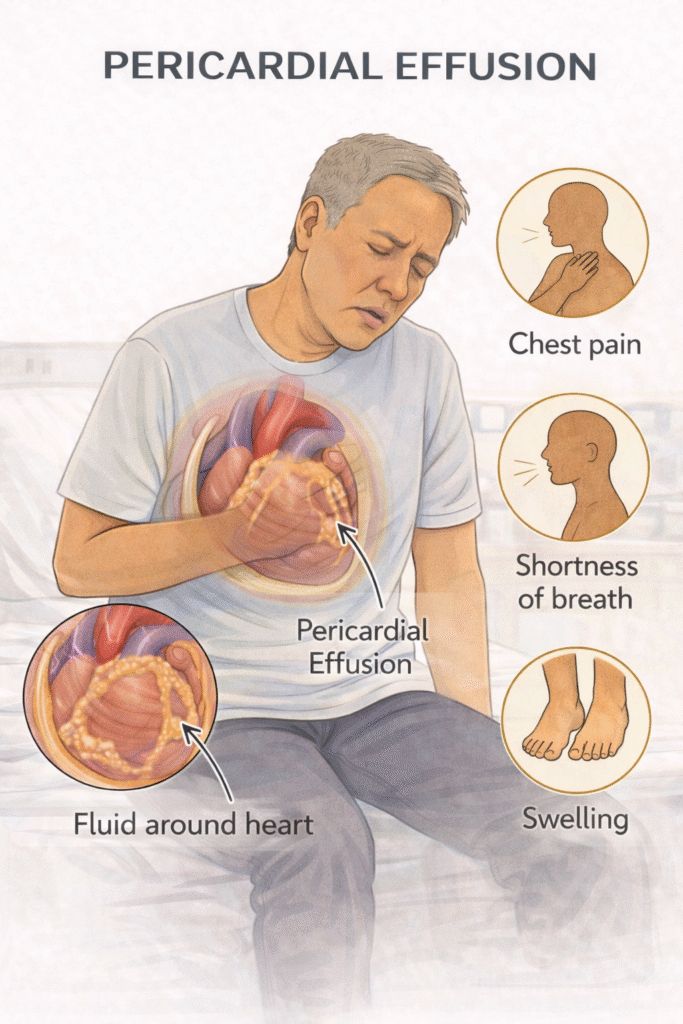4. Pericardial Effusion
📄 Definition
Pericardial effusion refers to the accumulation of fluid in the pericardial sac. It can be small and asymptomatic or large and haemodynamically significant, potentially leading to cardiac tamponade.
 Causes –
Causes –
Mnemonic: PERICARDIAL
Pericarditis (viral, bacterial, TB)
Endocrine (hypothyroidism)
Rheumatological (SLE, RA)
Iatrogenic (post-cardiac surgery, post-MI – Dressler’s)
Cancer (lung, breast, lymphoma, metastases)
Autoimmune (e.g. vasculitis)
Renal failure (uraemia)
Drug-induced (hydralazine, isoniazid)
Infection (especially TB in high-risk populations)
AIDS / HIV
Leukaemia/lymphoma (haematological malignancy)

📋 Clinical Features
Chest pain (pleuritic, improved by sitting forward)
Dyspnoea
Muffled heart sounds
Raised JVP (if tamponade)
Pulsus paradoxus (drop in SBP >10 mmHg on inspiration)
Distant heart sounds
🔬 Investigations
🥇 First-Line
ECG: Low-voltage QRS ± electrical alternans
CXR: Enlarged “water bottle” cardiac silhouette if large
Bloods: FBC, U&Es, CRP/ESR, troponin, TFTs, autoimmune screen
Echo: Diagnostic – shows size and haemodynamic impact of effusion
🥈 Second-Line
CT/MRI Heart: If unclear cause or planning pericardial window
Pericardiocentesis: Diagnostic if infective or malignant cause suspected
Management – Mnemonic: DRAIN FLUID
Determine cause (infective, malignant, inflammatory)
Refer cardiology for large/rapid effusions
Anti-inflammatories (NSAIDs ± colchicine if pericarditis-related)
Initiate antibiotics if infection suspected
NSAIDs + colchicine (if inflammatory origin)
Follow-up echo
Limit activity until resolution
Urgent pericardiocentesis if tamponade
Investigate underlying malignancy or autoimmune
Dialysis if uraemic
⚠️ Complications
Cardiac tamponade
Constrictive pericarditis (chronic scarring)
Recurrent pericardial effusions
Infective progression (purulent pericarditis)
🔺 Last updated in line with ESC 2023 Guidelines on Pericardial Diseases and NICE CKS
Published: April 2023 • Last updated: June 2023
- PARA-aligned, reviewed February 2026
✅ PASSMAP ensures all content is NICE-aligned and reviewed for Physician Associate Registration Assessment (PARA) success.
Educational platform. Not medical advice.
